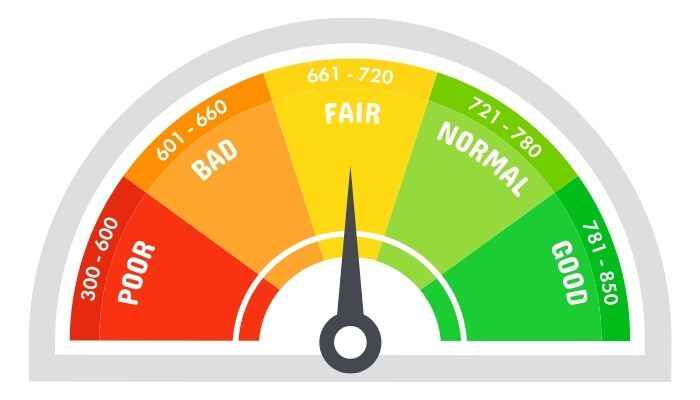In today’s competitive financial landscape, having a ‘good’ score is no longer sufficient for securing the best loan terms, interest rates, and credit products. Lenders are increasingly setting the bar higher, favoring borrowers with ‘excellent’ scores who demonstrate robust financial responsibility. This shift is driven by various factors, including changing lending practices, economic conditions, and advancements in credit scoring methodologies.
In this article, we will explore the reasons behind this trend, discuss the importance of aiming for an excellent credit score, and provide a comprehensive guide on strategies to achieve and maintain an outstanding credit rating.
Table of Contents
Toggle1. Understanding the Shift from Good to Excellent Credit Scores
Traditionally, a credit score in the range of 700 to 749 was considered good. However, as the lending landscape evolves, the definition of what constitutes an excellent score—typically 750 and above—has become increasingly critical for borrowers.
Factors Contributing to This Shift:
- Competitive Lending Environment: With the rise of fintech companies and alternative lending platforms, borrowers now have more options than ever. This competition has led lenders to refine their criteria for approving credit, favoring those with higher credit scores to minimize risk.
- Economic Uncertainty: Following global economic disruptions, lenders have become more cautious about extending credit. An excellent credit score is now viewed as a buffer against potential defaults, making it a key factor in creditworthiness assessments.
- Technological Advancements: With the advent of advanced credit scoring models, lenders are now able to analyze a broader range of data points, allowing them to better differentiate between good and excellent credit risk.
2. The Importance of Achieving an Excellent Credit Score
Striving for an excellent credit score offers several benefits that go beyond mere approval for credit:
- Lower Interest Rates: Individuals with excellent credit scores typically qualify for lower interest rates on loans and credit cards, which can save thousands of dollars over time.
- Better Loan Terms: Borrowers with excellent scores often enjoy favorable loan terms, including lower fees, higher credit limits, and more flexible repayment options.
- Increased Approval Odds: An excellent credit score enhances the likelihood of approval for higher-value loans, such as mortgages and auto loans, which are often scrutinized more closely.
- Greater Negotiating Power: With an excellent credit score, borrowers have more leverage when negotiating terms with lenders, allowing them to secure better deals.
3. Strategies for Building an Excellent Credit Score
Achieving an excellent credit score requires commitment and strategic planning. Here are key strategies to enhance your credit standing:
1. Effectively Manage Credit Utilization
- Keep Balances Low: Aim to maintain your credit utilization ratio (the percentage of your available credit that you’re using) below 30%. For an excellent score, ideally, this should be under 10%.
- Increase Credit Limits: If possible, request credit limit increases on existing accounts. This can help lower your utilization ratio, provided your spending habits remain the same.
2. Maintain a Strong Payment History
- Pay On Time: Your payment history is one of the most significant factors influencing your credit score. Make it a priority to pay all bills on time, including credit cards, loans, and even non-credit accounts like utilities.
- Automate Payments: Set up automatic payments or reminders to ensure you never miss a due date, which can help you build a positive payment history over time.
3. Diversify Your Credit Portfolio
- Mix of Credit Types: A diverse credit mix, including installment loans (like auto loans or mortgages) and revolving credit (like credit cards), can positively impact your score. Lenders prefer to see that you can manage different types of credit responsibly.
- Use Credit Responsibly: Avoid opening too many new credit accounts at once, as this can raise red flags for lenders and negatively affect your score. Instead, focus on using existing credit wisely.
4. Understand the Nuances of Credit Reporting
- Know What Affects Your Score: Familiarize yourself with the factors that impact your credit score. Understanding these nuances will empower you to make informed financial decisions.
- Review Your Credit Reports: Regularly check your credit reports for errors or inaccuracies that could be dragging down your score. You are entitled to one free report from each of the three major credit bureaus annually at AnnualCreditReport.com.
5. Monitor and Improve Credit Health Over Time
- Use Credit Monitoring Tools: Many financial institutions offer free credit monitoring services that alert you to changes in your credit score or report. Utilize these tools to stay informed about your credit health.
- Set Goals and Track Progress: Establish specific credit score goals and track your progress regularly. Celebrate milestones to stay motivated in your pursuit of an excellent score.
4. Conclusion
In an increasingly competitive financial environment, settling for a good credit score is no longer enough. Achieving an excellent credit score not only enhances your borrowing options but also opens the door to better terms and savings. By understanding the factors influencing credit scores and employing effective strategies for improvement, consumers can position themselves for financial success.
As you work towards building an excellent credit score, remember that this journey requires patience and persistence. By implementing the strategies outlined in this guide and maintaining a commitment to responsible credit management, you can significantly improve your credit health and unlock the financial opportunities that come with an outstanding credit rating.
